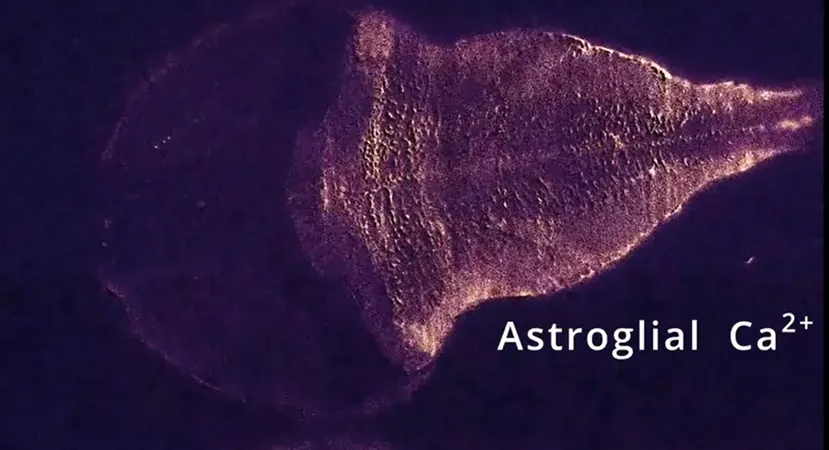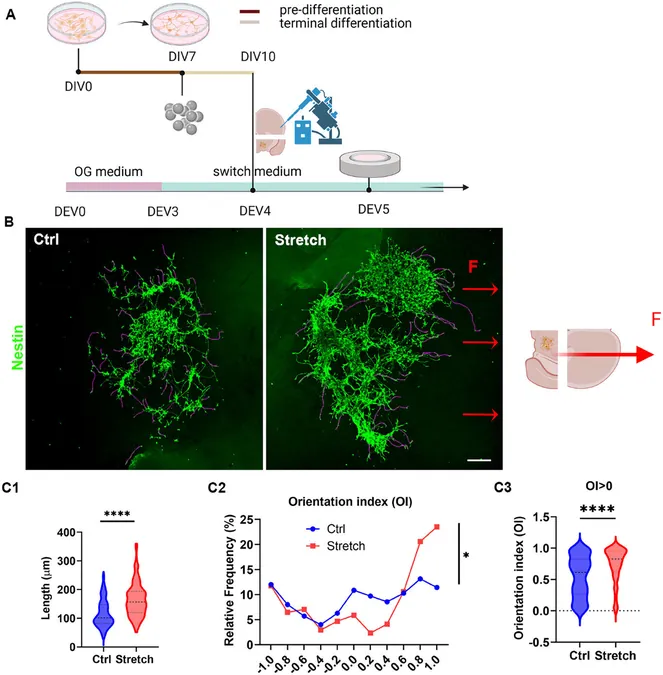
Astrocytes: The Unsung Heroes of Brain Function Revealed
2025-05-18
Author: Daniel
A Surprising Breakthrough in Neuroscience
In a stunning shift from traditional views, new research has revealed that astrocytes, once seen as mere support cells in the brain, are pivotal players in neuromodulation. A groundbreaking study published in *Science* showcases how these non-neuronal astroglial cells intricately regulate neuron activity and connections.
The 2019 Discovery That Changed Everything
In 2019, researchers from Janelia made headlines by demonstrating the essential role of radial astrocytes in influencing a critical survival behavior in zebrafish. They discovered that astrocytes act as a biological counter, signaling the fish to stop swimming when it’s futile—a response crucial for survival. However, the mechanism of communication between astrocytes and neurons remained a mystery.
Unlocking the Conversation: How Astrocytes Communicate with Neurons
Fast forward to today: a collaboration between Janelia and Harvard has unveiled the underlying communications. They found that these astrocytes trigger a biochemical circuit that modulates neuronal activity, effectively telling the fish to cease swimming based on their physical limitations.
From Milliseconds to Minutes: A New Understanding of Neuromodulation
Unlike fast-acting neurotransmitters that transmit signals in milliseconds, the newly discovered neuromodulators function on a much slower scale. This means they help tune neuronal signals over seconds to minutes, facilitating more flexible behavior. This research not only sheds light on astrocytes' role in neuromodulation but also highlights the need for including non-neuronal cells in our understanding of brain functions.
Innovation in Psychiatric Research: A New Target?
According to senior author Misha Ahrens from Janelia, understanding how these pathways operate could revolutionize treatments for psychiatric disorders. "Integrating these findings into psychiatric studies is crucial. Recognizing astrocytes as a major conduit for neuromodulation positions them as promising targets for therapeutic intervention," Ahrens noted.
The Mechanism: How 'Giving Up' is Controlled
Building on the 2019 findings, researchers explored the dynamics of the 'giving up' response in fish. They found that increased neuronal signaling through norepinephrine prompts astrocytes to elevate their calcium levels, triggering the release of ATP, a molecule also capable of acting as a signaling agent. However, they realized that this ATP is converted into adenosine, a recognized neuromodulator, which truly influences the neuronal response to stop swimming.
Indications of a Wider Biological Phenomenon
The implications of this study extend beyond zebrafish. Similar signaling pathways have been observed in mice and even in flies, suggesting a conserved mechanism across species that could be fundamental to understanding brain function and dysfunction. With connections drawn to depressive-like behaviors in mice, this opens exciting avenues for future research into human neurology.
Astrocytes: A Potential Key to Unlocking Brain Mysteries
With this latest research, scientists are being urged to reconsider the traditional neuron-centric view of the brain. The findings demonstrate that astrocytes are not just supportive but are vital in sophisticated cellular communication and behavioral modulation. As more studies explore these cellular interactions, they may reveal pivotal insights into the workings of our brain, potentially leading to new therapeutic strategies.



 Brasil (PT)
Brasil (PT)
 Canada (EN)
Canada (EN)
 Chile (ES)
Chile (ES)
 Česko (CS)
Česko (CS)
 대한민국 (KO)
대한민국 (KO)
 España (ES)
España (ES)
 France (FR)
France (FR)
 Hong Kong (EN)
Hong Kong (EN)
 Italia (IT)
Italia (IT)
 日本 (JA)
日本 (JA)
 Magyarország (HU)
Magyarország (HU)
 Norge (NO)
Norge (NO)
 Polska (PL)
Polska (PL)
 Schweiz (DE)
Schweiz (DE)
 Singapore (EN)
Singapore (EN)
 Sverige (SV)
Sverige (SV)
 Suomi (FI)
Suomi (FI)
 Türkiye (TR)
Türkiye (TR)
 الإمارات العربية المتحدة (AR)
الإمارات العربية المتحدة (AR)